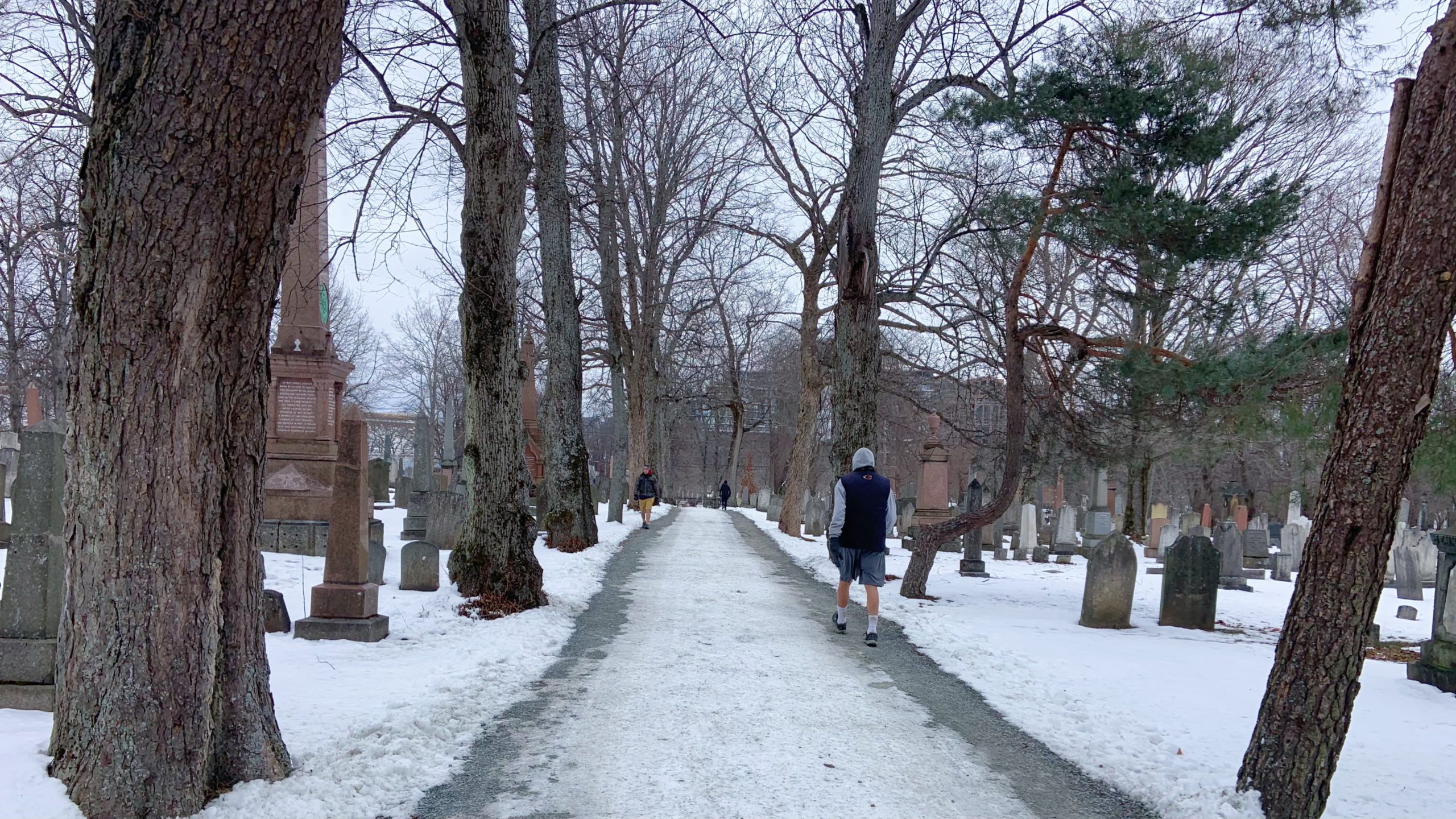Halifax faith leaders to find common ground on death and dying
Conversations on Saturday and Sunday will kick off the upcoming Interfaith Harmony Halifax Week

caption
Camp Hill Cemetery in Halifax. The purpose of the panel discussions will be to offer comfort in uncertain times, say organizers.This weekend, faith leaders in Halifax will participate in two online panel discussions, one focused on death and dying, and another focused on sharing common ground in uncommon times.
Both events are intended to spark conversations between people of faith, people of secular beliefs, and people of goodwill, said Kim MacAulay, a founding member of Interfaith Harmony Halifax.
Interfaith Harmony Halifax is hosting the first panel in partnership with Hospice Halifax. The event will take place over Zoom on Saturday night at 7 p.m., and will feature panelists of Muslim, Buddhist, Indigenous, Christian, and Hindu faith traditions. The panelists will discuss faith rituals related to death and dying.
MacAulay is part of the Tibetan Buddhist community. She is a clinical pastoral student, and did a clinical placement at Hospice Halifax. She believes that it’s essential for Haligonians of different beliefs to connect with each other.
“Death and dying is something that’s going to happen to all of us, so it’s common ground,” said MacAulay. “Our own fragility as human beings has certainly been brought home more through the pandemic.”
A year into the COVID-19 pandemic, the topic of death and dying has been top of mind across the globe. In Nova Scotia, 65 people have died from COVID-19. As of Friday, 19,722 people have died across Canada, and more than 2.19 million people have died worldwide.
“We deeply need to get to know each other, grow in our understanding and respect for each other, and to realize that we’re all humans and we share this one planet,” MacAulay said.
Jacquie Bell has been part of the Tibetan Buddhism community for 46 years. She’s a volunteer at Hospice Halifax, and is one of the panelists at Saturday’s event. She believes that it’s important to talk about death, rather than avoid the subject.
“I think that people think if they don’t talk about it it’s not going to happen,” said Bell. “So there’s a lot of fear and misgivings. The more we talk about it the better it will be.”
Sharing common ground in uncommon times
The second Interfaith Conversation will take place on Sunday at 7 p.m., and will focus on the theme of sharing common ground between different faith traditions. The panel will feature members of the Baha’i Faith, Taoist, Baptist, Jewish, Church of Jesus Christ of Latter-Day Saints, and Pagan communities.
“We often have a lot more things in common than we have that are different,” said John Chesley, a panelist and member of the Baha’i Faith.
The panel will show how different faiths are responding to the pandemic, as well as to environmental, racial, and economic inequalities in society.
“We’re trying to give comfort and direction to people,” said Chesley. “Show that there are things to learn from each religion.”
The people living around us
Interfaith Harmony Halifax grew out of an interfaith movement in Nova Scotia after the Swiss Air disaster in 1998, when an interfaith memorial service was held to honour those who died in the crash.
Interfaith Harmony Halifax began as part of World Interfaith Harmony Week, an annual United Nations event initiated by King Abdullah II of the Hashemite Kingdom of Jordan.
Hasmeet Singh Chandok is part of the Sikh community, and has been involved with the organization since 2016. He said that the event gives people the opportunity to ask questions about different beliefs in a safe environment.
“These are the people who are living around us every day,” he said. “We are working with them, we are eating with them, but, for some reason, religion becomes that line that we don’t cross.”
Interfaith Harmony Week is an opportunity for people to build new relationships, said Singh Chandok. “You’ll see a new world around yourself that’s always existed.”
Interfaith Harmony Week officially begins on Feb. 1.
About the author
Darrell Roberts
Darrell Roberts is a student journalist from St. John's. He enjoys reading and writing about the latest in culture and politics.
